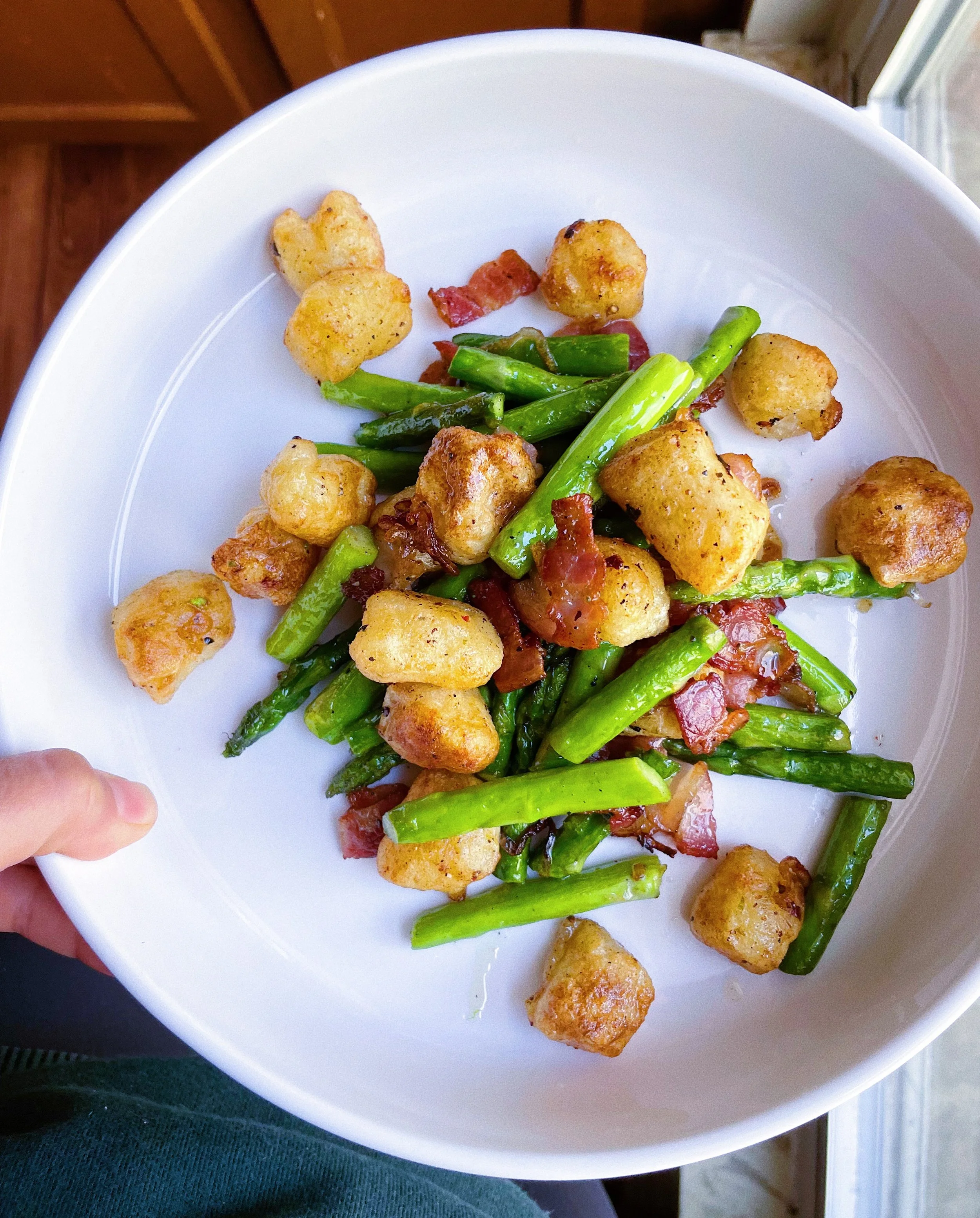Maybe you grew up hearing “an apple a day keeps the doctor away.” Which is not totally true, but also not totally untrue. Apples are amazing snacks - they’re portable, sweet, juicy, crunchy. They make good friends with all our favorite nut and seed butters. They’re full of fiber, which keeps us satiated and keeps our digestion humming along. Best of all - they’re pretty dang accessible and usually inexpensive. Oh and this time of year you can go pick them yourself, which is the most fun thing ever!
More things to know about apples (1):
One medium apple has 14% of your RDI for vitamin C
They contain soluble fiber, which has been shown to help lower blood cholesterol levels
Apples contain polyphenols (plant compounds that exhibit a health benefit), which have antioxidant effects
In one large study, daily consumption of apples was linked to a 28% reduced risk in developing type 2 diabetes
Apples contain pectin, a type of fiber that acts as a prebiotic - which is food for good bacteria in your gut
I suggest always eating the skin of fruits and veggies, since many nutrients tend to be concentrated there. In the case of apples, I do recommend opting for organic (or at least, unsprayed - like from a local orchard that is perhaps not certified organic). Apples are on the Environmental Working Group’s Dirty Dozen list for 2018, which is a great guide for produce items that you should prioritize buying organic. They also have a Clean 15 list, which lists produce that is least contaminated by pesticides.












